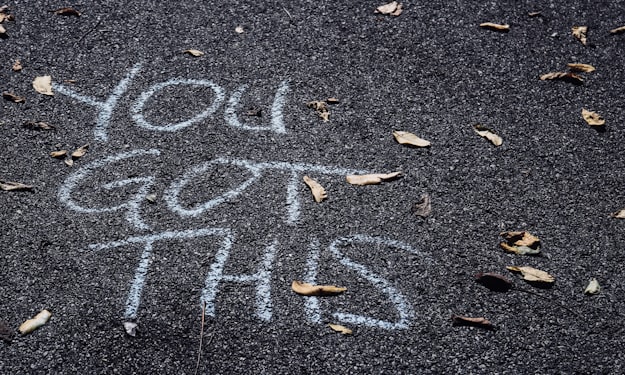depression
It is not just a matter of feeling sad; discover an honest view of the mental, emotional and physical toll of clinical depression.
When Everything happens all at Once
Has anyone ever felt overwhelmed when to many things happen all at once? Like it's so much to take in. We don't know what to say or do. Like everyone is moving quickly and we are lingering slowly. Sometimes I wish the world would slow down. For things not to happen all at once so I can catch up.
Louise Blake-Michael (Risen Phoenix)Published about 11 hours ago in PsycheA Guide to Quieting and Acknowledging Your Inner Critic
As someone with ADHD, I've faced significant challenges stemming from my inner critic, a common struggle not limited to ADHD alone but prevalent among individuals with various mental health conditions. This internal battle has often hindered me from seeking support and acknowledging my progress, setbacks, and wins, big and small, for a lot of my mental health journey.
Sandy PacePublished about 18 hours ago in Psyche

Anti-stress ring
As sources of stress multiply around us, methods, gadgets and other accessories to help us channel our nervous tension are diversifying.
Pape Mouhamet SenePublished 3 days ago in Psyche- Top Story - April 2024


NOTHING WILL EVER HAPPEN TO YOU
NOTHING WILL EVER HAPPEN TO YOU ^^ ~ I promise ~ ^^ THIS IS A STORY OF POSTPARTUM DEPRESSION SHOULD THE SUBJECT BOTHER YOU IN ANY WAY, PLEASE DO NOT READ.
Margaret BrennanPublished 3 days ago in Psyche 
The sorrowful life of a man (part 1)
I was happy with my parents, we would go out and have good meals then it was just me and my mum, my dad included. I was his favorite then I would do all sorts of bad things as a child and my dad would just watch me and smile when I was TWO years old.
Charlie williamsPublished 8 days ago in Psyche

Behind the Microwave Door
The microwave's shrill electronic cry shattered the concentrated silence Sarah had cultivated for the past hour. A cruel countdown to the looming deadline that hung over her like a storm cloud. With a sigh that rumbled from the depths of her being, she slammed her laptop shut, the satisfying click a defiant act against the suffocating pressure. Reaching for the familiar cotton oven mitt hanging by the stove, it offered a small comfort against the pre-meeting jitters that had taken root in her stomach.
mahmoud elsaadPublished 10 days ago in PsycheMental Millennial - Part 1
Part 1 I sat down and a mental brick wall descended right in front of my double display monitors on my desk. I'd just had another excruciating setback I just couldn't override with mental gymnastics.
The Moral Compass: How We Reason, Feel, and Behave
Human Morality 1. The Biology of Morality Empathy and Mirror Neurons: Our capacity to feel for others plays a crucial role. The neurons, brain cells that fire when we watch activities or feelings, are connected to compassion, permitting us to get it the results of our activities on others.
The Wise Man: Navigating Life with Knowledge and Insight
Introduction to the Concept of the Wise Man In a world filled with complexity and uncertainty, the figure of the wise man stands out as a beacon of guidance and understanding. But what exactly defines a wise man? How does one embody wisdom in their daily life? Let's delve into the essence of wisdom and explore how it shapes our existence.
quizat karimPublished 16 days ago in Psyche

"Illusions of Grandeur: The Masks We Wear"
In the bustling city of Metropolis, where skyscrapers kissed the clouds and neon lights painted the night sky, there existed a peculiar phenomenon—a dance of illusions spun by the inhabitants themselves. Here, reality was but a fleeting whisper, drowned out by the cacophony of showmanship and pretense.


The Road to Well-Being: A Guide to Stress Management in Modern Life
Navigating Life's Unexpected Twists: Transforming Stress into Stepping Stones for Personal Growth In the fast-paced urban jungle we inhabit today, where surprises lurk around every corner, disrupting our equilibrium, we are challenged to not only adapt but thrive amidst the chaos. Stress becomes our unwelcome companion, casting shadows on our well-being. Yet, within its grasp lies the potential for profound transformation. By deciphering its language, we can uncover invaluable insights, propelling us towards a life of resilience and fulfillment.
Kıvanç DemirkıranPublished 19 days ago in PsycheWhy do you get headache
During antiquity, migraines were regarded as severe ailments. The afflicted beseeched Asclepius, the deity associated with medicine.
Violet MuthoniPublished 23 days ago in Psyche





















